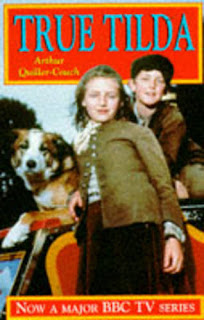There you will find this introductory note:
This was one of the most enjoyable e-texts that I have prepared but also one of the most difficult. Many of the characters use the working class slang and dialect of 100 years ago and the author sticks to this consistently throughout the book. At times there seems to be as many apostrophes as characters!
This attempt to render dialect phonetically was still going strong in the 1950s and is wearing to the modern reader. I'm told the approved technique in fiction these days is to do with the odd phrase early on and then trust your readers to remember how that character speaks.
But it's still a live issue, as a letter in the current Private Eye shows:
May I be the 94th reader from "oop" north to take issue with your WhatsApp group writer's irritating phonetical spelling of the f-word in Lee Anderson MP's recent posts? It follows the trend of, presumably, RP-speaking writers to needlessly illustrate literally someone's accent.
Many northeners will read "fook" with the long "oo", obviously, so it's a bit weird for us.
The other thing with those posts, of course, is that WhatsApp posts are generally typed, so the delightful Mr Anderson would hardly with the the word phonetically, would he?
English is not a phonetic language, whatever your accent, so the idea that we assume a character has an RP accent unless otherwise indicated tells us something about our society.

No comments:
Post a Comment